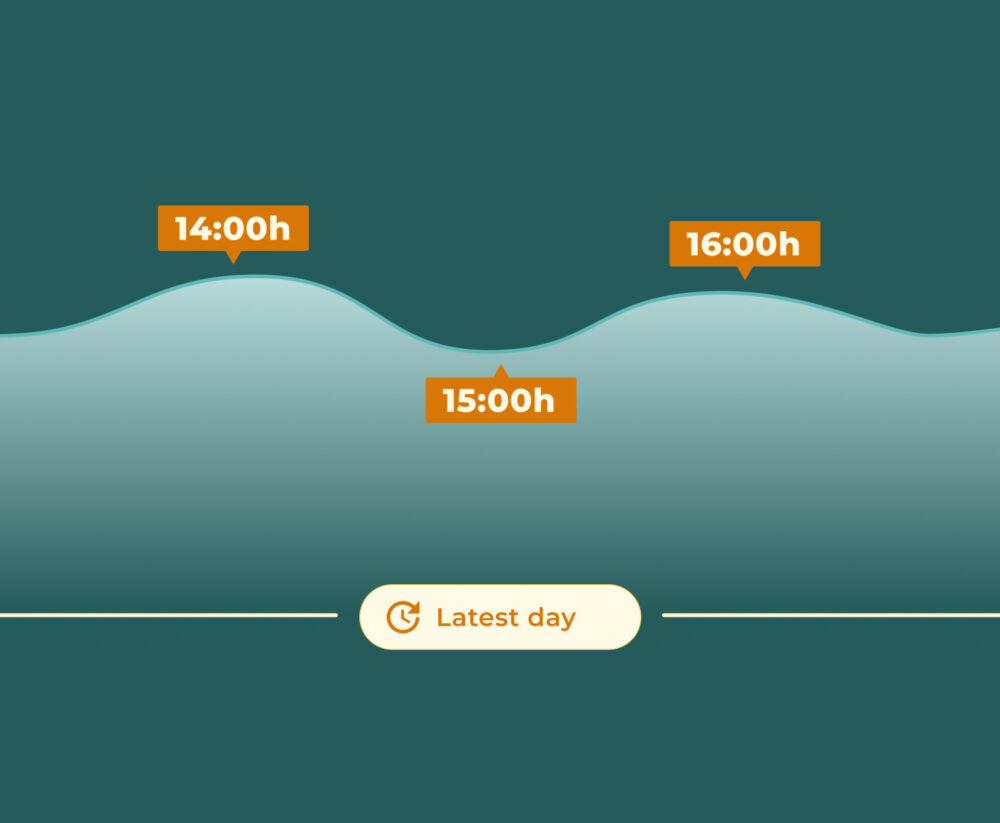The Role of the Point of Sale Manager in the Shopping Experience
The shopping experience has become a crucial factor in the success of any business. It’s no longer enough to offer quality products; it’s essential to ensure that every customer interaction is smooth, enjoyable and memorable. This is where the Point of Sale Manager (PoSM) comes in. This professional, who often goes unnoticed by the consumer, plays a vital role in creating and maintaining a shopping experience that not only attracts customers but also builds loyalty in the long term.
The PoSM is more than just a store supervisor; they are a strategist, an analyst and a direct link between the brand and the customer. Their work directly impacts how the brand is perceived, how products are managed and how sales are maximized. In this article, we will explore in depth the role of the Point of Sale Manager, their daily responsibilities, the key areas where they add value to a business, as well as the advantages and disadvantages of having a PoSM compared to a point-of-sale management software.
What is a Point of Sale Manager?
The Point of Sale Manager is a professional responsible for overseeing and optimising the point of sale, which can be a physical store or any space where commercial transactions are made directly with customers. Their main mission is to ensure that all operations at the point of sale are carried out efficiently, and that the products and services offered meet customer expectations.
Unlike a simple store manager, the PoSM has a more strategic approach. They are responsible for product presentation, the correct placement of promotions, inventory management and customer service. Their ultimate goal is to maximize sales and improve the shopping experience.
The PoSM also acts as an intermediary between the store and the company’s marketing, sales and distribution departments, ensuring that the company’s strategies are implemented effectively at the point of sale.
This profile needs to have 6 key skills, which will facilitate the development of their daily work:
- Flexibility and willingness: to resolve any issues that may arise.
- Empathy: to achieve the sales goal.
- Initiative and analytical skills: to be able to approach each visit to the point of sale in a personalized, professional and methodical way.
- Good communication and people skills: they are passionate about customer relationships.
- Sense of belonging: only when you have this feeling can you deliver the best results.
- Teamwork: in every commercial action that is proposed, there is a team of professionals working behind to ensure that the desired result can be achieved.

A day in the life of a PoSM
The day-to-day life of a Point of Sale Manager is dynamic and varied, as it combines operational tasks with strategic functions. Here is a typical day:
1. Reviewing aisles at the point of sale
The PoSM begins their day by making sure that the aisles at the point of sale are in optimal condition. This includes verifying that the products are displayed correctly, that prices are visible and correct, and even analyzing the competition that shares space on the shelf.
2. Inventory management
A key aspect of the job is inventory management. The PoSM reviews stock levels, identifies products that need to be replenished and coordinates with the distribution department to ensure that products arrive on time.
3. Sales analysis
The PoSM analyses the previous day’s sales data to identify patterns, best-selling products and areas that need attention. This analysis allows them to adjust the sales strategy in real time.
4. Sales support
A PoSM is always available to resolve any problems that may arise at the point of sale. During their sales visits they should listen and coordinate with the Store Manager to address any concerns that they may have. Their goal is to ensure the satisfaction of all parties involved.
5. Implementing promotions and campaigns
If there are ongoing marketing campaigns, the PoSM ensures that they are correctly implemented in the store. This can include placing advertising materials, organizing special events, and supervising discounts and offers.
6. Reporting to management
At the end of the day, the PoSM usually prepares a report with the day’s results, including sales figures, incidents and any recommendations for improving the point of sale’s performance.
Areas where a Point of Sale Manager adds value to your business
The PoSM is a key figure in the daily operation of a point of sale, and their influence extends to several critical areas of the business:
Product and distribution
The Point of Sale Manager plays an essential role in product management within the store. They ensure that products are presented attractively on the shelf, including strategic placement on shelves as well as product rotation according to expiration dates or sales cycles. Furthermore, they coordinate with suppliers and the distribution team to ensure that products are always available and in the necessary quantities. A good PoSM avoids both overstock and understock, thus optimising costs and improving customer satisfaction.
Price
The PoSM is also responsible for ensuring every day that prices are correct and aligned with company policy. This includes managing prices during promotions and discounts. An incorrect or poorly communicated price can lead to customer dissatisfaction or business losses.
Additionally, this figure is in contact with reality on the ground, at the point of sale, and can identify opportunities to adjust prices in response to competition or local demand. These actions will have a direct impact on the profitability of the point of sale.
Promotion
Promotions and marketing campaigns are powerful tools to attract customers and increase sales. The PoSM ensures that these campaigns are implemented effectively at the point of sale, thanks to their communication skills and their ability to negotiate.
This includes everything from placing advertising material to training staff on how to best communicate promotions to customers. An effective manager can also provide valuable feedback on the effectiveness of campaigns, allowing for quick adjustments to maximise their impact.
Customer relationship
The Point of Sale Manager is the trusted person who represents the company and constantly works to nurture relationships with points of sale. This trust is achieved through constant work, scheduled periodic visits and the skills we have mentioned previously.
From resolving problems to offering personalised recommendations, the PoSM ensures that each of the stores they manage feels properly attended to. In addition, their ability to build long-term relationships can translate into greater loyalty and increased repeat sales.
Advantages and disadvantages of having a PoSM
Like any other role within a company, having a Point of Sale Manager has its advantages and disadvantages. Below, we explore both aspects:
Advantages
- Personalized experience: A human PoSM can adapt to the specific needs of customers, offering personalized service that is difficult to replicate with an automated system.
- Adaptability: A PoSM has the ability to make decisions in real time, adjusting the sales strategy according to the situation at hand. This flexibility is crucial in fast-paced sales environments.
- Knowledge of the local market: By being in direct contact with points of sale, the manager gains a deep understanding of preferences and buying behaviours in their local area, allowing them to optimise product offerings and promotions.
Disadvantages
- Cost: Having a Point of Sale Manager involves an additional cost in salaries and training, which can be a disadvantage for smaller businesses with limited resources.
- Dependence: In some cases, the point of sale may become too dependent on the PoSM, which can be problematic if they are absent or decide to leave their job.
- Subjectivity: While a manager can offer a personalized approach, their decisions may be influenced by personal biases, which could affect the uniformity of the shopping experience.
Comparing a human Point of Sale Manager with management software
In today’s world, many companies are considering the possibility of replacing human managers with point-of-sale management software. Both approaches have their pros and cons, and the choice between the two will depend on the specific needs of the business.
Human Point of Sale Manager:
- Pros: Personalisation, ability to adapt, emotional connection with store managers, initiative.
- Cons: Higher costs, possibility of human error, dependence on the individual.
Management software:
- Pros: Consistency, error reduction, ability to analyse large volumes of data, lower operating costs in the long term.
- Cons: Lack of personalisation, limitation in resolving complex problems, lack of human interaction.
A human PoSM can offer a warmer and more personalized shopping experience, but management software can handle large volumes of data and automate processes efficiently. In many cases, the optimal solution may be a combination of both.
Furthermore, it is advisable to work with software that monitors the prices, promotions and stock of the business and its competitive situation in each channel, such as flipflow, which is used as a complement to the PoSM dynamics. This will eliminate those layers of information gathering to maximize the return of having a Point of Sale Manager, more focused on interaction with store managers and informed strategic decision-making.
Conclusion
The Point of Sale Manager plays a crucial role in the shopping experience, directly influencing customer satisfaction and business profitability. Through effective management of product, prices, promotions and relationships with store managers, the PoSM can make a significant difference in the success of a point of sale.
While having a PoSM involves certain costs and challenges, the advantages it offers, such as personalization and adaptability, are difficult to replicate through software. However, combining a human PoSM with management software can offer the best of both worlds, ensuring both operational efficiency and an exceptional shopping experience. Ultimately, the choice will depend on the specific characteristics and needs of each business.



